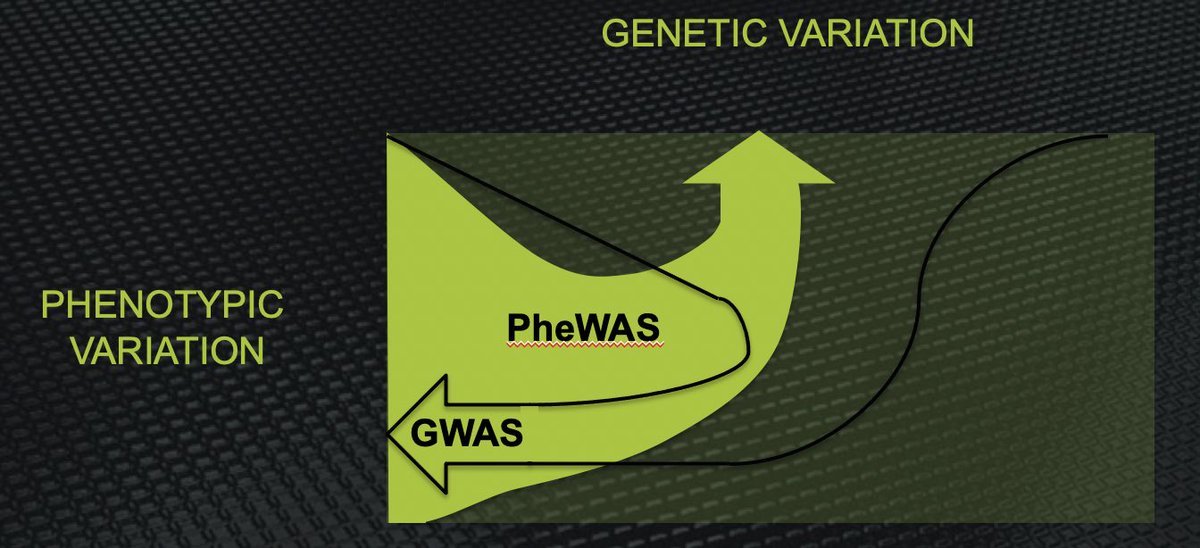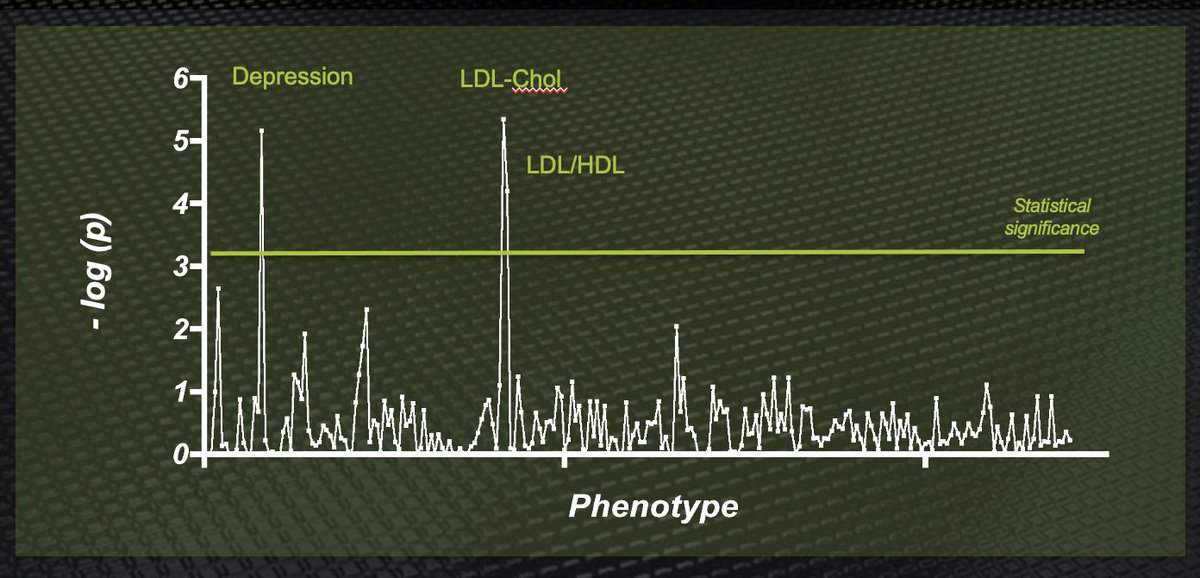Our Research Tissue Bank, held under HTA license, is a magnificent resourced with almost 100,000 blood samples in multiple carefully designed cohorts
Whatever your question, it’s likely we can answer it using these samples
Whatever your question, it’s likely we can answer it using these samples
Indeed, many of the samples have already been analysed for thousands of analyses - so the answer may already be available in our databases
Or for more specific questions we can perform bespoke epidemiology studies. We even have world-leading #PheWAS capabilities - if you don’t know how #PheWAS can help your project, read this #DrugBaron piece: https://drugbaron.com/phewas-the-tool-thats-revolutionizing-drug-development-that-youve-likely-never-heard-of/">https://drugbaron.com/phewas-th...
#PheWAS is the logical inverse of GWAS
GWAS looks at the contribution of genome-wide variation to one phenotype
#PheWAS looks at the full spectrum of phenotypes resulting from variation at one gene
GWAS looks at the contribution of genome-wide variation to one phenotype
#PheWAS looks at the full spectrum of phenotypes resulting from variation at one gene
#PheWAS can identify unexpected phenotypic associations with natural variation in a target gene - ideal for guiding indication selection for first-in-class candidates that modulate that gene product
But it can also highlight potential side-effects or toxicities that might otherwise go unnoticed until they cause an expensive late-stage failure
We recommend #PheWAS studies for most new discovery programs, particularly against novel targets
We recommend #PheWAS studies for most new discovery programs, particularly against novel targets
Here is an example of part of the output for a #PheWAS study on the apoliporotein E (ApoE) gene
It identifies the already known associations, such as with LDL-cholesterol - but also a novel association with major depressive disorder
It identifies the already known associations, such as with LDL-cholesterol - but also a novel association with major depressive disorder
Our Systems Biology group have performed dozens of #PheWAS studies for our clients using our unique Research Tissue Bank resource
If you would like to explore how #PheWAS could aid your project get in touch via http://rxcelerate.com"> http://rxcelerate.com
If you would like to explore how #PheWAS could aid your project get in touch via http://rxcelerate.com"> http://rxcelerate.com

 Read on Twitter
Read on Twitter



